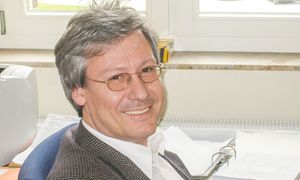Goals of PROTECT-AD
Around 15 percent of the German population suffer from an anxiety disorder. It is not unusual for patients to receive treatment rather late, if at all. Early and effective therapies are intended to counteract this often years-long ordeal. We want to improve the care situation and further develop and optimize psychotherapeutic treatment approaches. For this purpose, the research association PROTECT-AD was founded, which is funded by the Federal Ministry of Education and Research (BMBF). With the involvement of seven university centers, we pursue these goals in a broad approach and in numerous projects.
Extinction learning
At the core of the research network are two clinical studies that investigate so-called extinction learning in children and adults. This refers to the extinction of automated fear reactions to certain stimuli by learning other behavioral patterns. This can be achieved through new insights, new experiences and with the help of cognitive behavioral therapy (CBT). According to current results of preclinical studies, extinction learning is the central mechanism of action of this exposure-based CBT.
How can we improve extinction therapy?
Our goal is to increase the effectiveness of this central therapeutic mechanism. In two multi-center clinical studies, we are investigating which specific elements can be used to optimize extinction therapy. The clinical therapy studies are accompanied by several experimental and supplementary studies that investigate underlying mechanisms, moderators, and predictors of therapy success. The CAC is working on the following subprojects:
P1 Adult RCT
The aim of P1 is to improve the success of extinction therapy in adults with anxiety disorders in a randomized controlled trial (RCT) by intensifying treatment. It is tested, for example, whether this can be achieved by a systematic variation of anxiety-inducing stimuli or situations, by a targeted examination of anxiety fears - the so-called prediction error - or by a consolidation of therapeutic units and exercises in a shorter time frame of about twelve weeks.
Contact person and local project leader:
Prof. Dr. phil. Paul Pauli
Chair of Psychology I
Phone: +49 931 31-82842
fax: +49 931 31-82733
e-mail: l-psy1@psychologie.uni-wuerzburg.de
P2 Children RCT
In a large-scale randomized controlled trial (RCT), our aim is to find out to what extent it is advisable to include parents in the treatment of children with anxiety disorders, and whether the parents' behavior influences the success of intensified exposure therapy. The study examines children and adolescents aged eight to 14 years with separation anxiety, specific phobia, or social anxiety disorder.
Contact person and local project leader:
Prof. Dr. med. Marcel Romanos
Director of Child and Adolescent Psychiatry
Phone: +49 931 201- 78000
fax: +49 931 201-78040
e-mail: kj_direktion@ukw.de
P3 Virtual reality
In subproject P3, we are investigating, among other things, the means by which extinction learning can be improved and whether, for example, the use of virtual reality can contribute to this. We also examine which patients benefit most from this additional therapy, taking into account significant subjective, behavioral, and biological characteristics.
Contact person and local project leader:
Prof. Dr. phil. Paul Pauli
Chair of Psychology I
Phone: +49 931 31-82842
fax: +49 931 31-82733
e-mail: l-psy1@psychologie.uni-wuerzburg.de
P4 MRT examination
In subproject P4, we experimentally investigate the neurobiological basis of anxiety disorders and their treatment. Among other things, we compare certain neurofunctional activation patterns of healthy volunteers with those of people with different anxiety disorders by means of MRI scans. On the one hand, we hope that this will lead to a better understanding of how conditioning and extinction learning happens in the brain, of the effects of exposure therapy on these activation patterns and whether, on the other hand, conclusions can be drawn regarding the recurrence of anxiety and emotional processing.
Contact person and local project leader:
Prof. Dr. phil. Martin Herrmann
Department of Psychiatry, Psychosomatics and Psychotherapy
Phone: +49 931 201-76650
e-mail: herrmann_m@ukw.de
Prof. Dr. rer. nat. Ulrike Lüken
Humboldt-University of Berlin
Institute of Psychology
Phone: +49 30 2093-9307
E-mail: ulrike.lueken@hu-berlin.de
P5 Genetics and epigenetics
Are there genetic factors or epigenetic mechanisms that influence the success of extinction learning or intensified extinction learning? In research project P5, we use imaging techniques to identify potential biomarkers that provide information on the extent to which patients are likely to respond to the respective therapeutic procedure.
Contact person and project leader:
Prof. Dr. med. Jürgen Deckert
Director of the Department of Psychiatry, Psychosomatics and Psychotherapy (PPP)
Phone: +49 931 201-77000
fax: +49 931 201-77020
e-mail: deckert_j@ukw.de
Prof. Dr. med. Katharina Domschke, PhD, M.A.
Medical Director of the Department of Psychiatry and Psychotherapy Freiburg
Phone: 0761 270-65050
e-mail: katharina.domschke@uniklinik-freiburg.de
Results
The study clearly shows the strong efficacy of exposure therapy in the treatment of adult anxiety disorders. Two treatment approaches were used: one in a regular time frame and the other intensified over time. Both groups experienced a reduction in anxiety symptoms. The more intensively treated group achieved improvement 32% faster on average, had lower dropout rates and experienced improved quality of life after only six months.
During his presentation at the 2nd German Psychotherapy Congress 2023 in Berlin, Prof. Dr. rer. soc. Andre Pittig presented the results of the catamnesis: In the follow-up examination after five years, the symptom improvement had remained stable on average for about 58.5% of the re-participants, with about ten percent reporting a worsening and ten percent reporting a further improvement.
Contact
Prof. Dr. med.
Jürgen Deckert
Direktor der Klinik und Poliklinik für Psychiatrie, Psychosomatik und Psychotherapie (PPP)
+49 931 201-77000
Prof. Dr. phil.
Paul Pauli
Lehrstuhlinhaber – Lehrstuhl für Psychologie I – Biologische Psychologie, Klinische Psychologie und Psychotherapie
+49 931 31-82842
Kontakt, Sprechzeiten
Telefon
Anmeldung zur ambulanten Behandlung in der Klinik und Poliklinik für Psychiatrie für Psychiatrie, Psychosomatik und Psychotherapie (PPP)
+49 931 201-77800
Anmeldung in der Hochschulambulanz
+ 49 931 3182839
Anmeldung zur ambulanten Behandlung im Klinik und Poliklinik für Kinder- und Jugendpsychiatrie, Psychosomatik und Psychotherapie (KJPPP)
+49 931 201-79600
E-Mail und Fax
Sekretariat PPP
ps_sekr@ukw.de
+49 931 201-77020
Sekretariat Hochschulambulanz
angstambulanz@psychologie.uni-wuerzburg.de
+4931 31-828390
Sekretariat KJPPP
kj_ambulanz@ukw.de
+49 931 201-78620
Anschrift
Interdisziplinäres Zentrum für Angsterkrankungen | Universitätsklinikum Würzburg | Magarete-Höppel-Platz 1 | 97078 Würzburg | Deutschland




